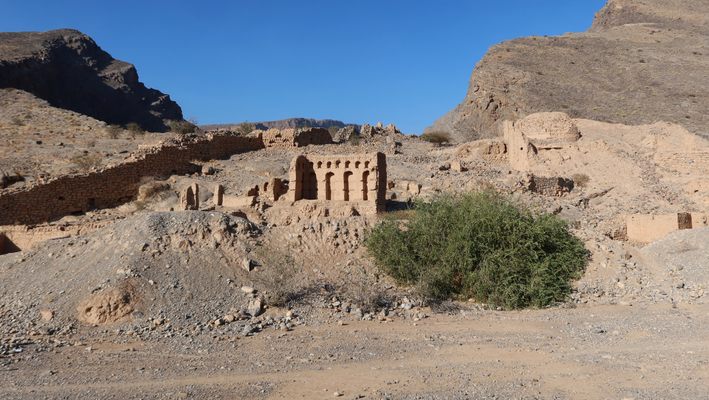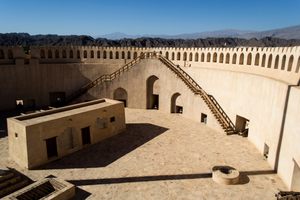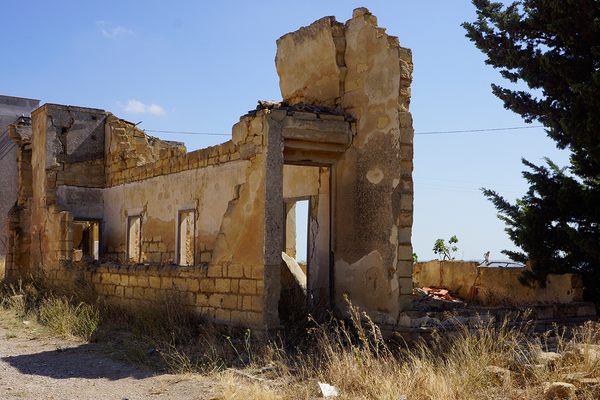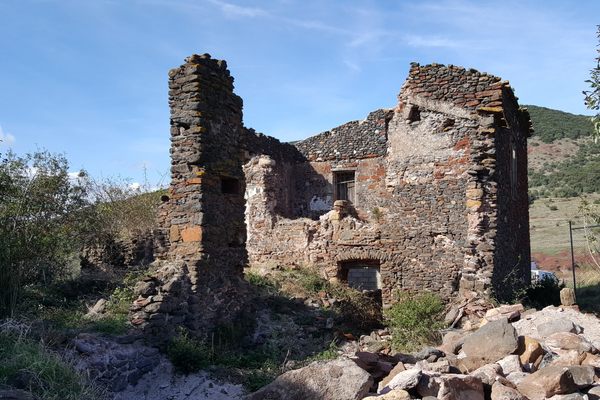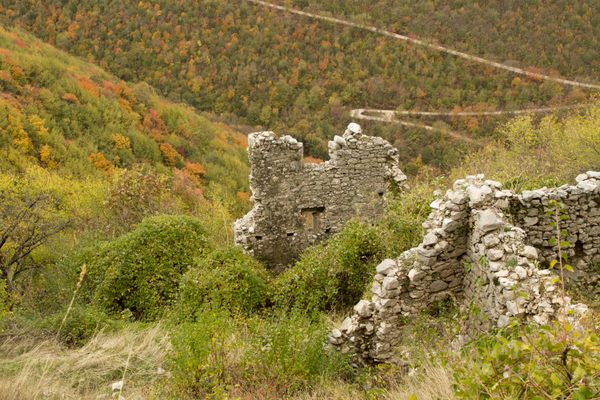About
The discovery of oil in Oman in the 1960s brought about years of increase in income. In turn, this engendered drastic changes in society, resulting in many traditional houses or even entire villages being abandoned across the Akhdar Mountains. Once your eyes get acquainted with these villages, you’ll realize that something is awry in Tanuf.
Traditional Omani houses are usually made of mud bricks and limestone. The roof is supported by locally available timber—after a house is abandoned, it's usually the first piece to go. The roof collapses and debris fills the rooms, usually preventing the walls from caving in. Slowly, the elements consume everything else from the top down, making it look as if the building were melting.
The ruins in Tanuf also look as if they're melting. However, here it is common that entire sections of the buildings are altogether missing. A couple of walls may still be standing, but everything else is gone. Neglect did not cause this kind of destruction, it was a much more violent force.
Events leading to the abandonment of Tanuf go back to the 19th century, and are rooted in the animosity between the Sultanate of Muscat and the Imamate of Oman. The former controlled large swathes of territory along the Omani coastline, while the latter controlled the interior of what today is known as Oman. The Sultanate of Muscat was backed by the British Empire, which was keen on having a hand in the running of Southeast Arabia. To the Imamate of Oman, having foreign influence over Omani affairs was total anathema, and armed clashes ensued.
Throughout the end of the 19th and the first half of the 20th century, the situation remained volatile. Tentative peace would last months or years, before a flare-up occurred, followed by a treaty, and more flare-ups. The conflict intensified with the discovery of oil in the Arabian Peninsula. All of a sudden, many far-flung outposts of negligible importance became prized possessions. The year 1954 marks the beginning of the Jebel Akhdar War. The British were still backing the Sultanate, but the Imamate found new support among other Arab states willing to take an anti-imperialist stand.
In 1957, after three years of fighting, the Imamate scored several victories against the Sultanate, which seemed on the verge of capitulation. This is the point at which the British Empire decided to intervene directly. This intervention included sending RAF Venoms to bomb strategic locations in the hands of the Imamate. One of these locations was a fort based in a village called Tanuf.
Related Tags
Know Before You Go
Free and open 24/7.
Community Contributors
Added By
Published
April 8, 2024
